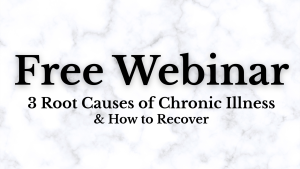
If You’re Sick You’re Stupid
DISCLOSURE: This post may contain affiliate links. Please read my disclosure for more info.
If you suffer from a multi-system chronic illness, such as Lyme disease, chronic fatigue syndrome/myalgic encephalomyelitis (CFS/ME), or fibromyalgia (FM), you might come off as looking stupid a lot of the time. Sick people don’t always think straight.
Depending on the day, you could be putting up with any combination of oh-so-awesome symptoms. You could have tummy troubles, a headache, pain in your knees, your back, your shoulders – heck, everywhere!
Maybe you are bumping into walls without really feeling the loss of balance that made you do it, all while you get ready for the day – what was I about to do? Where am I going? I bet your memory sucks too.
To someone who doesn’t know you, and even to someone who does, this can make you look like a stupid person.
If you’ve been sick or in pain before, even if it wasn’t chronic, you may have noticed that your mind is less than optimal. For example, a university student who gets the flu while studying for an exam may find that he cannot focus and he gets easily confused and distracted. He might have to have is exam rescheduled.
Imagine this happening over the course of six months, a year, two, five, or ten years or even more! If you’re a sufferer, you don’t have to imagine.
Throughout this timespan, your family, friends, and colleagues may see you continually being forgetful, distracted, unable to commit. New friends and contacts would never have known the healthy you and so believe that this is your norm.
A clouded and foggy mind leads to poor decisions, big and small, thus conjuring up the s-word – stupid.
What did Forrest Gump’s mom say? Stupid is as stupid does. Be like Forrest and keep your head up and keep going, even at blunders that make you look or feel stupid. Correct your mistake as quickly and smoothly as possible and then move on.
BRAIN FOG & MEMORY
As for memory issues, you may find some people unable to buy this as a valid reason for your mistake. For example:
“Honey, why did you put my stuff there?”
“I didn’t put it there.”
“Yes, you did.”
“No, I didn’t”
“Yes, honey, you did. Remember on Tuesday when I asked you to bla bla bla and I said bla bla bla and you said…?”
Silence – searching brain… flash – a memory! “Oooooh! Yes, I did put that there.”
“Why did you say you didn’t?”
“Because I couldn’t remember doing it.”
“Yeah right.”
Sound familiar? The best you can do is just to say the truth and move on. If the other person does not accept it, it may be best to let it slide than to continually defend yourself in hopes of convincing them that you’d actually forgotten.
LITTLE MISTAKES, BIG MISTAKES
The little mistakes are hard because at least with big mistakes, you can say, “Well, anyone could easily have made that mistake.” While the big mistake might hurt, it is the little ones that make you (or others) say, “How stupid! How could I mess that up?” The accumulation of them could hurt worst than one major blunder.
Be kind when this happens and imagine your harsh self-talk aimed at a child or your best friend. Would you say those words to them? Would you really say, “You’re so fucking stupid. What’s wrong with you? What an idiot mistake. I don’t know why you’re crying.”
I wouldn’t dream of saying that to someone I care about – would you? So don’t do it to yourself. When you screw up, big or small, see yourself as a child (or maybe your child), then – it sounds silly, but – wrap your arms around yourself, or even just your hands on opposite arms, and squeeze. Hug yourself and speak to your body like it was that child, even just to say, It’s OK. Say, I love you and erase stupid from your self-talk vocabulary.
If you’re ready to be rid of the brain fog & pain and wasted money on therapies that don’t work, book a complementary call at the link below to discuss how to get your life back and end the cycle of relapses.


 Previous Post
Previous Post Next Post
Next Post






